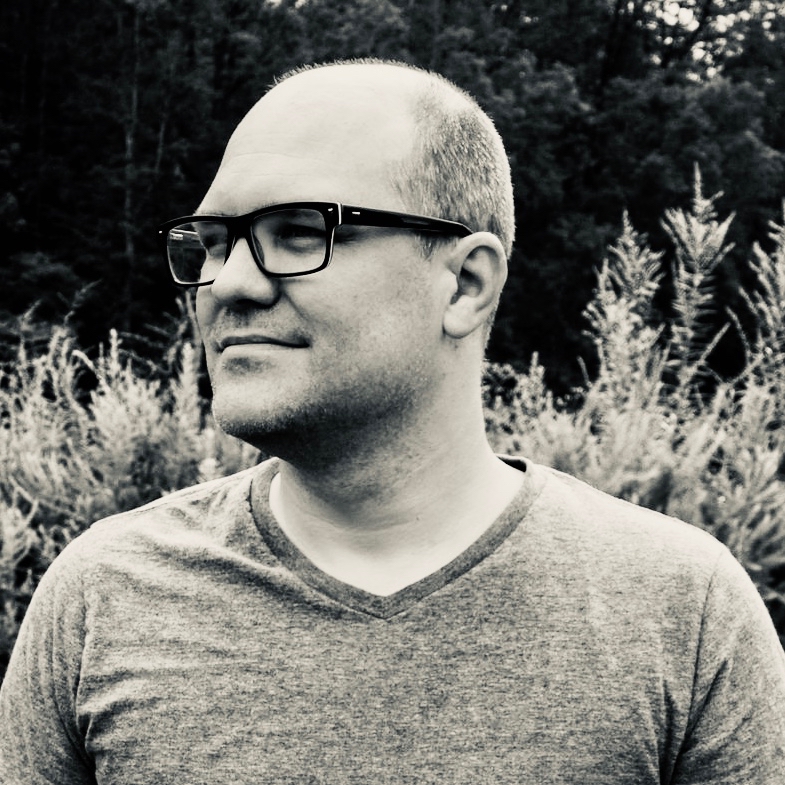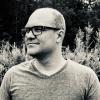Meet Teaching Artist Steve Woodward


Steve Woodward is an editor at Graywolf Press, where he has edited books of literary fiction and nonfiction by authors including Anna Burns, Jamel Brinkley, Daisy Johnson, Esmé Weijun Wang, Mark Doten, Angela Palm, Benjamin Percy, Susan Steinberg, and others. Authors he has worked with have won the Man Booker Prize and the NBCC Award and have been finalists for the National Book Award and the LA Times Book Prize. He has an MFA in fiction from the University of Michigan and has taught at Macalester College and the low-residency MFA program at Sierra Nevada University. He has spoken about editing and publishing at AWP, the Bread Loaf Writers Conference, the Loft Literary Center, StoryStudio Chicago, and GrubStreet, among other venues. He lives in Brooklyn Park, Minnesota.
You can follow Steve on Twitter at @snwood and find his current classes on his artist bio page.
***
When did you start teaching? What path—career or otherwise—brought you here?
I first taught creative writing and composition classes as an MFA student at the University of Michigan. After I received my MFA, I found my way into book publishing in the editorial department at Graywolf Press. Before long I realized that what I was learning on the job was not readily available in the undergraduate and graduate courses I took. So I made it a priority to find ways to share that knowledge about publishing with other writers.
Since then, I've gone on to teach literary publishing and creative writing in Sierra Nevada University's MFA program, at Macalester College, and at many writers conferences and universities as a guest editor.
How would you describe your teaching style?
I'm a teacher who likes to see students find immediate and practical application for the things they are learning. It's much more exciting to see someone have a breakthrough with an assignment focused on their own creative work than it is for them to struggle with an assignment based on a topic or subject that they have no connection to.
For that reason, I invite students to bring their own interests, projects, and writing into the classroom, so that they are motivated to apply the lessons we learn to things that they actually care about. It's a style that encourages immersive, hands-on learning. I also believe that we have a lot to learn as writers from those around us, and so encourage conversation, discussion, and active listening, so that we might all learn and grow together.
When it comes to imagining and creating classes, where do your ideas come from? What in particular inspires you?
I'm inspired by so many things, it's hard to narrow it down! I find that my imagination is activated any time there are things I don't know about. That process of discovery can start anywhere, from an image, to a news article, to a song. I love sharing the absolute feeling of the joy of being alive that comes from that state of creating new work.
As for my classes, I want that same feeling of excitement to flow from the work we're doing. If you've ever attended a reading, or had a in-depth conversation with a friend, and left feeling inspired, then you know what I'm talking about. I hope that anyone taking my classes will leave feeling empowered by the process of learning new information and sharing ideas with others, and by doing so, will find their own sources of inspiration.
What's the ideal environment for your classroom? What atmosphere are you hoping to establish?
The ideal environment for my classroom is one of open, ego-free collaboration, without hierarchy and without discrimination. It's common for unexamined biases and egos to get in the way of good writing in the classroom. If we think that we know everything, then that's a sure sign that we have a lot to learn. Conversely, if you are open to what others can teach you, then the process of learning accelerates, especially if you try to understand why others are reacting the way they are to your writing.
Regardless of what your class is specifically focusing on, what's the main goal you have for your students?
The main goal I have for my students is that they leave feeling more confident, knowledgeable, and empowered than when they started. Every class is an opportunity to drown out feelings many writers struggle with: inadequacy, self-doubt, impostor syndrome, or simply dreams that outpace skills. Building a positive mindset through practical application is a way to combat this. Once you can say to yourself (in midwestern parlance), "I wrote this and it's not half-bad," then you're on your way to feeling confidence in your ability as a storyteller.
What are goals you have for yourself? These could be teaching goals, writing goals, career goals, community goals, etc.
To be honest: teaching a class at the Loft is a goal of mine! I have wanted to give back to this community that has already given me so much for a long time. A long-running goal of mine is making writing a sustainable practice. If, as we've so often been told, writing is not profitable as a career in and of itself, how can you continue to write around the edges of your day job? That's a question I answer day by day.
I also have a goal to ensure that emerging writers have more access to information about publishing than I had when I was younger. Publishing can often be insular and opaque, and never more so than to the very writers who hope to publish their work, and I aim to erode that barrier between those groups.
What have been some of your own favorite educational experiences?
I took a class in high school at the Minnesota Center for the Book Arts that I really loved. We learned how to bind books, tried paper making, and learned to think of books as art objects, not just as vehicles for story. That class has always stayed with me as a reminder that the design and production of the book can be an achievement, and that together, book artists, designers, and writers can do something that none of them can alone.
To you personally, what is the most important part of the literary arts?
Building community is easily the most important part of the literary arts. Though the long-standing image of a solitary writer toiling away in a garret has persisted, that doesn't map onto the reality of book publishing today. Writers may be creating the initial draft alone, but they need feedback after that point to know what is and isn't working—and for that, you need readers!
Many writers rely on other writers, people they've formed friendships with over the years from workshops, writers' groups, and residencies, to be their first readers. But if you don't have that, don't despair. These days you don't need a workshop to find "beta readers," as they are sometimes called now, as there are places online where you can post work and get a response. Once an author is done revising and approaches a publisher, the work will still undergo further revision with the collaboration of a thoughtful agent or editor before it takes its final shape. And when a book is out into the world, it takes that same literary community—the one that inspired the work, spurred revision, and fueled publication—to help support the book, thus bringing the artistic cycle full circle.
Is there anything else you'd like to share?
I'm always expanding the definition of literary practice. What do we call writing? Is it merely the process of committing words to the page? Or can we include those other necessary activities that help us understand what it is we're trying to express?
Working in another artistic medium can help: painting, drawing, songwriting, photography, and more can help, by their very physical nature, to open doors on the page that have been closed to you. Even long walk or hot bath can sometimes unlock solutions to problems that a week of hard toil at the desk cannot. Because, as much as we may want to call writing hard labor, it's just as often the subconscious process of rumination that leads to the greatest discoveries. And that's just as likely to occur away from the desk as it does at it.
